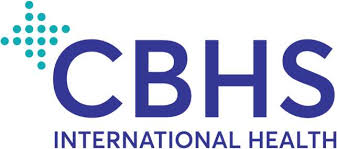Explore Overview
Guides Overview
Australian Health System
(25 articles)
Health Insurance Prices
(20 articles)
Private Health Insurance
(34 articles)
Private Health Insurers
(15 articles)
Medicare
(28 articles)
Medicare Benefits Schedule (MBS)
(6 articles)
Pharmaceutical Benefits Scheme (PBS)
(8 articles)
Public Hospitals
(6 articles)
Private Hospitals
(7 articles)
Medicare Levy
(7 articles)
Private Health Insurance Rebate
(7 articles)
Age-based Discount
(5 articles)
Lifetime Health Cover Loading
(11 articles)
Insurers Overview
 AAMI Health Insurance
AAMI Health Insurance
 ACA Health
ACA Health
 ahm
ahm
 AIA Health Insurance
AIA Health Insurance
 Allianz Care Australia
Allianz Care Australia
 APIA Health Insurance
APIA Health Insurance
 Astute Simplicity Health
Astute Simplicity Health
 Australian Unity
Australian Unity
 Bupa Health Insurance
Bupa Health Insurance
 CBHS Corporate
CBHS Corporate
 CBHS Health
CBHS Health
 CBHS International Health
CBHS International Health
 Defence Health
Defence Health
 Doctors’ Health
Doctors’ Health
 Emergency Services Health
Emergency Services Health
 Frank
Frank
 GMHBA
GMHBA
 GU Health
GU Health
 HBF
HBF
 HCF
HCF
 HCi
HCi
 Health Partners
Health Partners
 HIF
HIF
 Hunter Health Insurance (by CDH Benefits Fund)
Hunter Health Insurance (by CDH Benefits Fund)
 ING Health Insurance
ING Health Insurance
 Latrobe Health Services
Latrobe Health Services
 Medibank
Medibank
 Mildura Health Fund
Mildura Health Fund
 Navy Health
Navy Health
 nib
nib
 Nurses & Midwives Health
Nurses & Midwives Health
 onemedifund
onemedifund
 Peoplecare
Peoplecare
 Phoenix Health Fund
Phoenix Health Fund
 Police Health
Police Health
 Priceline Health Insurance
Priceline Health Insurance
 Qantas Insurance
Qantas Insurance
 Queensland Country Health Fund
Queensland Country Health Fund
 Real Health Insurance
Real Health Insurance
 Reserve Bank Health Society (RBHS)
Reserve Bank Health Society (RBHS)
 RT Health
RT Health
 see-u by HBF
see-u by HBF
 Seniors Health Insurance
Seniors Health Insurance
 St Lukes Health
St Lukes Health
 Suncorp Health Insurance
Suncorp Health Insurance
 Teachers Health
Teachers Health
 Territory Health Fund
Territory Health Fund
 Transport Health
Transport Health
 TUH
TUH
 UniHealth
UniHealth
 Union Health
Union Health
 Westfund
Westfund
 Allianz Care Australia
Allianz Care Australia
 CBHS International Health
CBHS International Health
News Overview
Health insurance premiums rise to 9-year high
Higher Gaps forcing many people to delay care, survey finds
Health insurance giving Aussies less value, doctors say
Insurers paying more for hospital claims, new data shows
Aussies paying steep Gaps for specialist care, data shows
Govt warns insurers about premium increases
ACT residents paying high Gaps, as premiums set to rise
Hospital Cover claims jump 11.6% amid public hospital strain
Compare Overview
Calculate Cheapest Policy
Search for a new policy based on your health cover needs and budget. We compare every insurer and every policy.
Policies change monthly, stay informed
Subscribe to stay informed. Insurers regularly update policies, introduce new policies and close policies. Our data is updated monthly.






